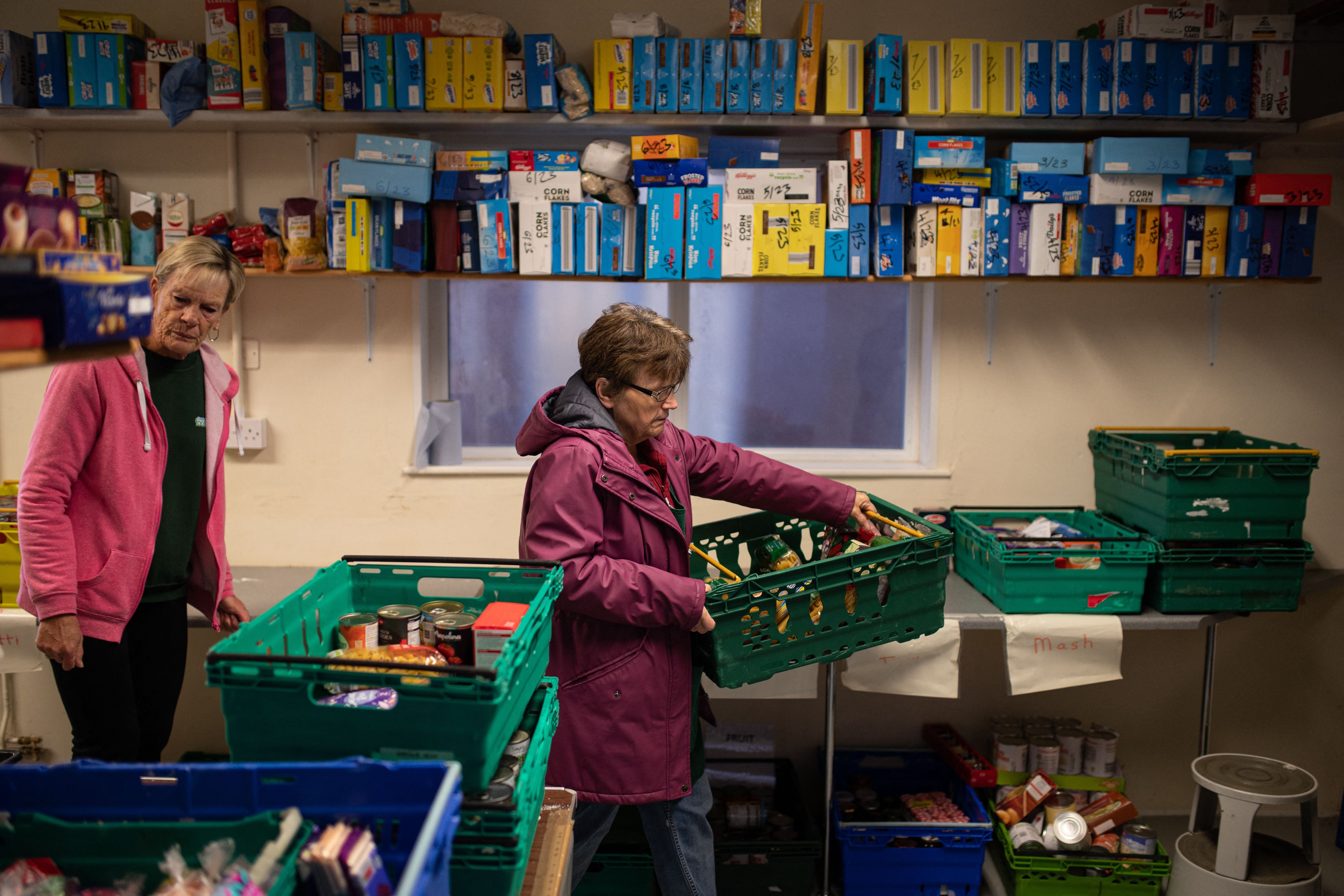Two in five lowest-paid workers ‘skipping meals and relying on food banks’
One in five said they had taken out a payday loan to cover essentials

Your support helps us to tell the story
From reproductive rights to climate change to Big Tech, The Independent is on the ground when the story is developing. Whether it's investigating the financials of Elon Musk's pro-Trump PAC or producing our latest documentary, 'The A Word', which shines a light on the American women fighting for reproductive rights, we know how important it is to parse out the facts from the messaging.
At such a critical moment in US history, we need reporters on the ground. Your donation allows us to keep sending journalists to speak to both sides of the story.
The Independent is trusted by Americans across the entire political spectrum. And unlike many other quality news outlets, we choose not to lock Americans out of our reporting and analysis with paywalls. We believe quality journalism should be available to everyone, paid for by those who can afford it.
Your support makes all the difference.The lowest paid are continuing to suffer from the cost-of-living crisis, skipping meals and having to rely on food banks, according to research.
A survey of 2,000 workers by the Living Wage Foundation found that 60 per cent have used a food bank in the last year, half say they are worse off than a year ago and two in five have regularly skipped meals or fallen behind on household bills.
One in five said they had taken out a payday loan to cover essentials.
The foundation said 3.5 million workers were paid below the voluntary rate, which will be uprated next month.
Workers on the lowest pay have been hit hardest by higher food and energy costs because they spend a greater proportion of their income on these necessities, said the report.
Half of those surveyed reported that they are worse off than a year ago, mainly because of the increased cost of living.
Half of respondents said earning below the real living wage has negatively impacted their mental health and made their overall quality of life worse.
The report was published a month before the Living Wage Foundation announces new living wage rates for the next year which will reflect increasing living costs.
The rate is currently £10.90 for those in the UK and £11.95 in London, compared with the statutory national living wage of £10.42 an hour for adults.
Katherine Chapman, director of the Living Wage Foundation, said: "After more than a year of record price rises, we are finally starting to see inflation ease.
"But today's research shows that the cost-of-living crisis is far from over, especially for the 3.5 million workers who are paid less than the real living wage.
"With over half of those on low pay even worse off than a year ago, three in five visiting food banks, and two in five regularly skipping meals, more needs to be done to protect the lowest paid workers."
A Government spokesperson said: "We are on track to halve inflation, which is the most effective way to put more money in the pockets of hard-working families.
"We have also given a pay rise to millions of workers this April through our increases in the national living wage and national minimum wage - with a full-time worker on the national living wage seeing their earnings increase 9.7 per cent, or £1,600 a year before tax.
"In the meantime, we are helping households with one of the largest support packages in Europe - including benefit and pensions increases of over 10 per cent from April and direct cash payments to the most vulnerable."


